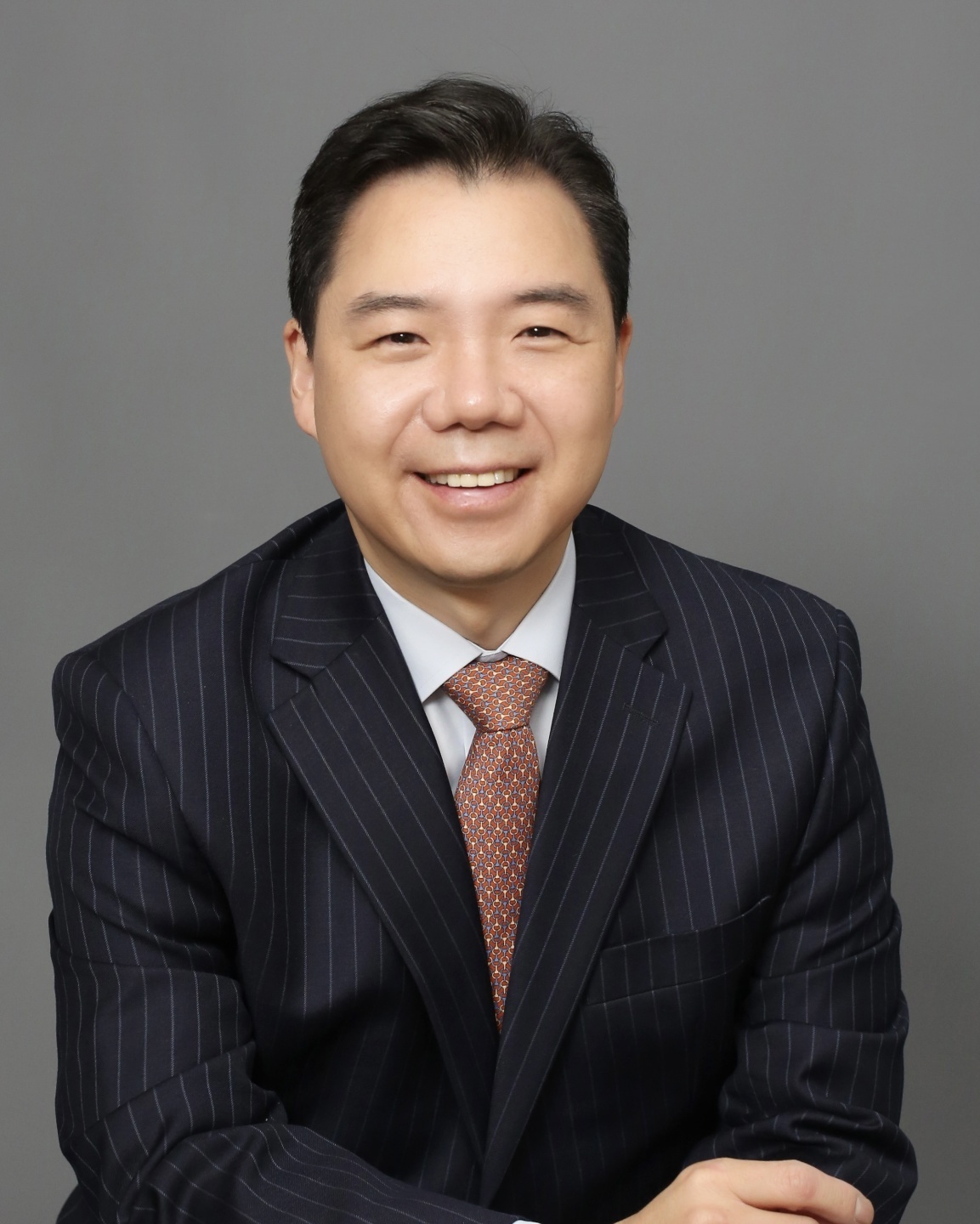[Hwang’s China and the World] Changes in European security environment: A temporary shake or an overall paradigm shift?
By Choi He-sukPublished : July 20, 2022 - 14:41


The NATO summit at the end of June signaled a shift in global security. The summit identified Russia as a direct threat and China as a systemic challenge. The results of the NATO summit indicate where the United States’ policy objectives stand. The US’ new strategy in the Asia-Pacific region is the Indo-Pacific strategy, and its strategy in Europe is NATO’s eastward expansion. The US is aiming to build a connection between the Indo-Pacific and NATO. We can see that the US extended from the Asia-Pacific to the Indo-Pacific through the Indian Ocean and reached the Atlantic Ocean in the end, while the Atlantic Ocean is stretching its arm to Asia, going through the Indian Ocean. The US is trying to make a tie between these two. It does not necessarily mean that the US’ intention can be accomplished or is accomplished as it wishes. However, what matters is that the US intends to establish a new order on an absolute position that excludes China and Russia. It is now clear that China is the next target after it addresses the direct threat from Russia. No one knows when the Ukraine war will end. However, the US will certainly turn its eyes on China, when the situation in Ukraine settles down either into Donbas’ “independence” (Russia’s desire) or a “breakaway” (Ukraine’s stance). In order to understand the current security situation from Europe to the Indo-Pacific, this week’s discussion invites two experts from South Korea and abroad. Liselotte Odgaard is a professor at the Norwegian Institute for Defense Studies in Oslo and a nonresident senior fellow at Hudson Institute. Lee Jae-seung is a professor and Jean Monnet Chair at the College of International Studies, Korea University.
Hwang: In February, witnessing Russia’s invasion of Ukraine, Sweden and Finland abandoned their some seven-decades of neutrality and decided to join NATO. What was the background for the decision?
Odgaard: Finland and Sweden are already well-integrated into NATO, and have expensive defense cooperation agreements with NATO member states. However, as nonmembers they do not have the same influence on NATO decisionmaking. In addition, they do not have the protection of the collective defense obligation of Article 5 in the NATO treaty. In view of Russia’s confrontational approach to the post-Soviet sphere and its willingness to use hard power in this region, it makes sense that Finland and Sweden wish to join NATO to protect themselves against threats from Russia.
Lee: The military threat from Russia was clearly and seriously recognized this time. Sweden and Finland agreed on the point that the post-World War II neutrality system cannot guarantee the safety of their countries anymore. As shown in Ukraine, NATO and its allies showed hesitation to intervene directly in the crises in the nonmember countries. These two countries needed a more stable collective defense structure to prevent possible military confrontations. In fact, these two countries were not unfamiliar with the NATO framework. Sweden and Finland joined the NATO Partnership for Peace in 1997, and began collaboration with NATO at that time. As member countries of the European Union, the two countries have also built a network between the EU’s Common Security and Defense Policy and NATO. In the face of the growing military threat from Russia, Sweden and Finland could mobilize strong domestic consensus to defend core values such as democracy, freedom and the rule of law within the NATO architecture.
Hwang: NATO Secretary General Jens Stoltenberg mentioned that “with 32 nations around the table, we will be even stronger.” Do you agree with what he says? Who exactly is the opponent and what is the purpose of being strong?
Lee: The cohesion of NATO and collective defense will increase. Russia was named as the most significant and direct threat to the allies. The term “threat” replaced the previous usage of partner, challenge, or competitor. The rise of China was also noted as a systematic challenge that threatens NATO’s interests, security and values. Threats from China were perceived in a broad range of political, legal and economic arenas. Furthermore, there are growing numbers of global-level threats such as pandemics, climate change, cyber, and human security. NATO and its global allies need to be organized more systematically to deal with these challenges effectively. This announcement implies that NATO and its allies will be more active in building a new security and economic architecture in vying with Russia, China, and other authoritarian regimes. The consolidation of the NATO partnership involves both functional and structural reinforcement.
Odgaard: I think NATO’s ability to deter aggression from adversaries such as Russia depends on the ability of Europe and the US to stand together with solidarity in their willingness to defend each other. It would be significant for Finland and Sweden to be not just NATO partners anymore, but full member states and as such covered by Article 5.
Hwang: Turkey announced that Sweden and Finland have pledged to address “Turkey’s pending deportation or extradition requests of terror suspects” -- referring to Kurds, who Turkey considers a terrorist group -- in exchange for agreeing to Sweden and Finland’s NATO membership. Shall we understand this as Sweden and Finland putting their national interests first?
Odgaard: It remains to be seen how this is resolved in practice. Promising to address Turkey’s pending requests in a rather watered-down statement leaves how the issue is handled from now rather open to interpretation.
Lee: NATO membership has certainly been a priority for Sweden and Finland. The PKK (Kurdistan Workers’ Party) issue is a sensitive one, but was expected to be handled with a political solution. A quid-pro-quo was made at the Madrid summit. Sweden and Finland agreed to Turkish demands by declaring the Kurdish PKK “a terrorist organization” and assured prompt and thorough measures to be introduced. In return, Turkey gave consent for NATO membership for the two countries. As long as the compromise does not hurt the fundamental principles of democracy or freedom of Sweden, Finland and NATO, the deal was indispensable. Turkey emerged as a key political player within NATO that could determine Swedish and Finnish membership by taking advantage of its minority agenda. The implementation of the compromise, however, needs to be observed, especially in terms of human rights and democratic norms.
Hwang: In case Ukraine gives up its bid for NATO membership, do you see any possibility of negotiation in terms of neutrality, one of Russia’s three demands?
Lee: I would like to highlight that what we should pay attention to is not the form of neutrality itself, but the specific features of Ukrainian neutrality if it is introduced. The biggest question is the defense capability of Ukraine: whether neutrality is armed or disarmed. Armed neutrality would bring the issue of military support from outside, most notably from the US and NATO. Disarmed neutrality could risk becoming Russia’s de facto satellite country unless Ukraine would equip itself with sufficient counterforces. As mentioned above, the age of neutrality is declining in Europe. The legitimacy of multilateral agreements is often questionable. The 1994 Budapest Memorandum that guaranteed the security of Ukraine was almost nullified in 2014 when Russia annexed Crimea. The neutrality solution requires strong commitments from all stakeholders, but the feasibility and credibility of the neutrality option do not look high in Ukraine at this moment. As a political agreement, however, a limited neutrality concept could be discussed in the peace talks. The diplomatic alliance of Ukraine will be another key issue to be addressed. Ukrainian membership in NATO does not seem probable, but Ukraine strongly wants to join the EU, and the EU may give it candidacy country status.
Odgaard: It is too early to predict anything about Ukraine’s future status in my opinion.
Hwang: What is the European stance regarding an Indo-Pacific strategy?
Odgaard: If we‘re talking about the US’ Indo-Pacific strategy, it is a commitment from the US to maintain that China is threat number one, and the primary long-term focus for US deterrence. As a result, it is also important for Europe and the US to stand united around a more critical and defensive stance towards China and Russia. NATO’s strategic concept is concerned about Chinese-Russian cooperation, and it is a good sign that Europe and the US are managing to maintain unity of purpose. However for Europe, Russia is threat number one. There is a recognition that the two countries’ security threats to the West are linked. It is also intended to signal that the US and Europe will help each other out in both the Indo-Pacific and the European theater, and hence try to create strategic dilemmas for Russia and China by building strong deterrence forces in both Europe and the Indo-Pacific.
Lee: The EU announced its strategy for the Indo-Pacific in 2021. While recognizing the growing political and economic importance of this region, the EU no longer wanted to remain as an outsider. Chinese naval expansion, as well as the aggressive Belt and Road Initiatives, also raised European awareness. The EU’s Indo-Pacific strategy highlights governance by rule of law, free navigation and sustainability. Building multilateral governance in the region is still a key concern of the EU. It also went together with the EU’s connectivity strategy toward the Asia-Pacific region. France, the Netherlands and Germany began to engage in a number of military exercises in the Indo-Pacific region in recent years. However, the EU has been cautious not to single out China as a rival, and has tried to avoid any nuances of a containment strategy in the document. Policy coordination with the US is necessary, but Europe may want to build its own path toward peace and prosperity in the Indo-Pacific region.
Hwang: How do you evaluate South Korea’s participation in the US’ Indo-Pacific strategy?
Lee: South Korea has maintained strategic ambiguity toward the US’ Indo-Pacific strategy. While the South Korea-US alliance has always been the core of security policy, South Korea has also tried to maintain constructive relations with China in recent years, especially regarding economic issues and the North Korean agenda. As the Indo-Pacific strategy could be seen as anti-China, South Korea has been cautious not to provoke politically sensitive issues with China. The South Korean navy was hesitant to expand its operation area beyond the Korean Peninsula, especially in the East and South China Seas. However, the middle ground for strategic ambiguity is rapidly shrinking amid escalating Sino-US competition. South Korea-Japan relations are another key agenda item, as Japan has been playing a key role in the US’ Indo-Pacific strategy. South Korea’s Indo-Pacific strategy inevitably involves more engagement with Japan. The European engagement in the Indo-Pacific region may provide South Korea with a more positive platform on which a more multilateral approach and issue-specific participation would be enabled. The South Korean president’s participation in the recent NATO summit, together with three other Asia-Pacific countries—Japan, Australia and New Zealand—also signal that South Korea is taking some steps closer to the US’ Indo-Pacific strategy in the coming years.
Odgaard: South Korea’s participation is very significant. After feeling neglected by the US half a decade ago, the last showdown between North Korean leader Kim Jong-un and former US President Donald Trump brought South Korea back in focus. South Korea is now a key country in the eyes of both Europe and the US, and Indo-Pacific allies such as Japan and Australia. It is important that South Korea is integrated in the emerging security architecture of the Indo-Pacific, which is built on the US alliance system. South Korea is obviously important as a front-line state for North Korea and China, but it also has a lot to offer technologically and industrially. This is essential to its allies and partners in the West and the Indo-Pacific.
Hwang: Is the Ukraine war a gain or loss for China?
Odgaard: I don’t think China is happy about Russia’s invasion of Ukraine, because it will damage Russia’s relative power. As Russia is a key strategic partner, the war will also damage China, mainly because China has been forced to clarify its priorities. Does it support noninterference and the classic concepts of sovereignty on which the UN system rests? Or does it show loyalty toward Russia? China has not been comfortable having to clarify its position, as demonstrated by its reserved attitude toward breaching Western sanctions in its dealings with Russia. Nevertheless, China has demonstrated that it remains committed to working with Russia as a close strategic partner. China is thinking it can do as it did during the last North Korean standoff, where it pretended to put pressure on North Korea, but breached sanctions in reality. Once it was clear that North Korea could not obtain an attractive deal from its point of view, China resumed its full support for North Korea. We are likely to see a similar pattern during the conflict with Ukraine.
Lee: China would find both collateral benefits and collateral damages from the war in Ukraine. If Russia could have achieved its political goals, such as preventing the expansion of NATO and the control of the Donbas region without big opposition, China would have been motivated to expand its “sphere of influence” in East Asia, including Taiwan and the Korean Peninsula. These could have been collateral benefits. However, the open war by Russia brought strong resistance from Ukraine and Western countries, and a series of tough sanctions measures on Russia. China may assume those sanctions could be applied to it in the future in the case of confrontations with the US and European countries. China, in that sense, may worry about collateral damages from the war. In the short run, Sino-Russian ties would get strengthened both in the political and the economic domains. In case Russian power weakens after the war, China may secure its status in the Group of Two, a proposed informal special relationship between China and the US, and vie with the US.
Hwang: Do you think that Taiwan could be the Ukraine of Asia?
Lee: The geopolitical burden is huge for Taiwan. However, I do not think Taiwan will follow the Ukrainian path. Taiwan has steadily strengthened its partnership with the US. The industrial supply chain, especially in semiconductors, is another key connecting cord that motivates the US and its allies to keep Taiwan in a secure economic network. The strategic importance of Taiwan to the US is much higher than that of Ukraine. Taiwan has been very adamant about keeping its independence from mainland China. Taiwan’s internal and external conditions are quite different from those of Ukraine. However, the path of the Russia-Ukraine war certainly affects Taiwan’s fate. If Western allies -- NATO, the US and the EU -- were divided, and if Putin could achieve a favorable deal to control Ukraine from the peace talks, China will increase pressure on Taiwan, and vice versa.
Odgaard: I don’t think China has much appetite for an invasion of Taiwan when watching how Russia is faring in the Ukraine conflict. So for at least something like the next decade, I don’t think an invasion is likely.
Hwang: Do you think that a new Cold War has already started?
Odgaard: I would not call it a Cold War because the geographical divisions we had then do not apply anymore. Decoupling can probably only go so far, and for now it is mainly rhetorical. The importance of the cyber and space domains also means that we cannot separate from each other, because of cyber, space, investments, and so on. China is a part of Europe and the US, just as we are a part of China and the Indo-Pacific. Conflicts and wars play out in different ways that are not always very visible physically, but the general public still very much feel the consequences of cyberattacks against civilian targets. There is also a merging of civilian and military spheres in the cyber and space domains that makes it difficult to distinguish between these two spheres. So a new Cold War is in many ways a strange description of the international system that we are living in now, which doesn’t adequately describe its central dynamics.
Lee: Yes. The new Cold War is becoming a new normal in international relations. The confrontation between the two blocs -- the US, Europe and Asia-Pacific allies on one side, and Russia and China on the other -- became clearly visible. Even before the Russia-Ukraine war, Sino-US competition signaled the advent of a new Cold War. The Russian invasion of Ukraine brought back two old ghosts from World War II: open war based on the use of force and the sphere of influence. The unstated optimism that actual military confrontation was improbable was broken, and global security had to deal with the bare nature of power politics. However, the world has already established a high density of economic interdependence vis-a-vis the old Cold War period. The cost of a new Cold War would be much higher than the one from half a century ago. The door to a new Cold War has been unlocked, but is not yet fully open. The task of peacebuilding in Ukraine in the coming months bears importance not just for stability in Europe, but also for the prevention of another Cold War in many other regions of the world.
Hwang Jae-ho is a professor of the Division of International Studies at the Hankuk University of Foreign Studies. He is also the director of the Institute for Global Strategy and Cooperation. This discussion was assisted by researcher Ko Sung-hwah and Shin Eui-chan.









![[Kim Seong-kon] Democracy and the future of South Korea](http://res.heraldm.com/phpwas/restmb_idxmake.php?idx=644&simg=/content/image/2024/04/16/20240416050802_0.jpg&u=)










![[Today’s K-pop] Zico drops snippet of collaboration with Jennie](http://res.heraldm.com/phpwas/restmb_idxmake.php?idx=642&simg=/content/image/2024/04/18/20240418050702_0.jpg&u=)